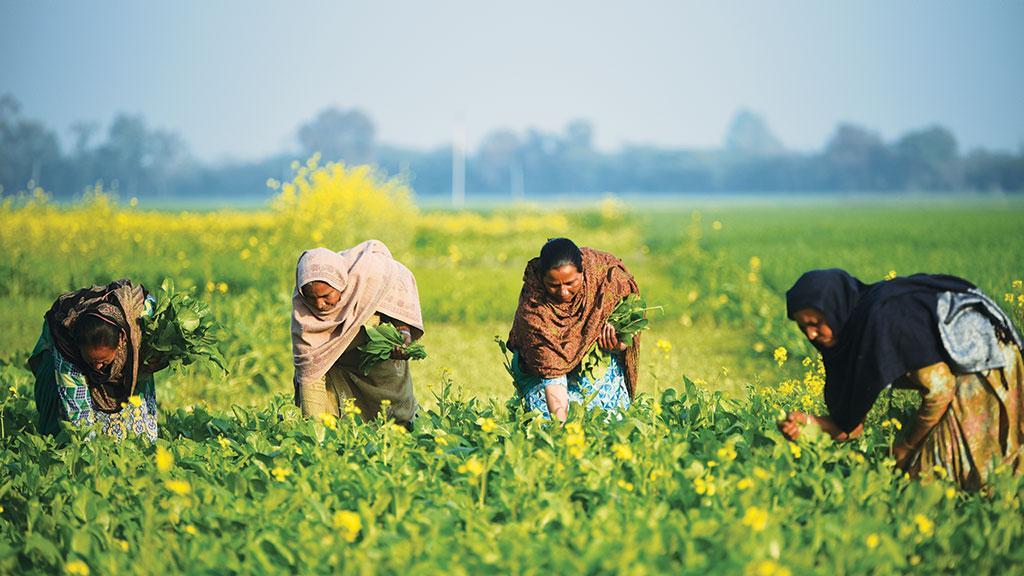The Legislative Assembly of Punjab unanimously passed three farms bills to negate the contentious Centre’s farm laws.
Following a five-hour discussion, Punjab on Tuesday became the first state in the country to formally reject the Central government’s three agriculture laws. The Legislative Assembly of Punjab unanimously passed three bills to negate the contentious Union laws in the agricultural sector that were passed last month.
The Farmers Produce Trade and Commerce Promotion and Facilitation (Punjab Amendment) Bill 2020, Farmers Agreement on Price Assurance & Farm Services (Punjab Amendment) Bill 2020, and The Essential Commodities (Special Provision & Punjab Amendment) Bill were passed unanimously in the special session. The assembly also passed a fourth bill drawn from the 2017 Congress manifesto that promises to protect landholdings of up to 2.5 acres from attachment if farmers fail to pay off their debt.
After passing the state’s agriculture bill, the assembly also passed a resolution rejecting the Central legislations and the proposed Electricity Amendment Bill and demanded their immediate annulment.
The three bills essentially mentioned that no sale or purchase of wheat or paddy (Punjab’s two major crops) will take place below the minimum support price (MSP). The state government’s legislative Assembly in the bills also mentioned that for the sale or purchase of wheat or paddy under a farming agreement below MSP will lead to imprisonment of not less than three years and a fine.
After the session, Punjab Chief Minister Amarinder Singh and other Assembly members met Punjab Governor VP Singh Badnore to urge him to accord his assent to the bills, before sending them to the President. The Chief Minister also said that his government is all set to take legal recourse if the Governor refuses to sign the amendment Bills.
What are these three bills about?
Farmers Produce Trade and Commerce Promotion and Facilitation (Punjab Amendment) Bill 2020 provides that no sale or purchase of wheat or paddy shall be valid unless the price paid for it is equal to or greater than MSP. Anyone buying below MSP will be imprisoned for three years. The bill seeks to amend sections 1(2), 14, and 15 of the Central government’s Farmers’ Produce Trade and Commerce (Promotion and Facilitation) Act, 2020 to ensure that sale or purchase of wheat or paddy in the State is not allowed below the MSP.
The Essential Commodities (Special Provision and Punjab Amendment) Bill 2020 protects the consumers from hoarding and black marketing of agriculture produce and secures and protects the livelihood of farmers and farm labourers. The bill seeks to amend the Centre’s ‘The Essential Commodities (Amendment) Act, 2020 by amending section 1(2) and section 3(1A) of the Essential Commodities Act, 1955.
The Farmers Agreement on Price Assurance and Farm Services (Punjab Amendment) Bill 2020 has passed amendments to the Centre’s law on contract farming. The bill also specifies that no sale or purchase of wheat or paddy under a farming agreement will take place below MSP and those who violate the conditions will be punished for up to three years as per the amendment. It also seeks amendment to sections 1(2), sections 19 and 20 of the Centre’s Farmers (Empowerment and Protection) Agreement on Price Assurance and Farm Services Act, 2020.
The fourth bill is The Code of Civil Procedure (Punjab Amendment) Bill, 2020 seeks to insert a provision for exemption of agriculture land not exceeding 2.5 acres.
What the bills seek to achieve?
The Punjab government has claimed that these new bills are passed by the State government in order to restore the agricultural safeguards for the farmers through the regulatory framework of the Punjab Agricultural Produce Markets Act, 1961 to secure and protect the interests and livelihoods of farmers and farm labourers. These bills will also safeguard the interest of those people as well who are engaged in agriculture and related activities in the state.
The bills are also aiming to protect small and marginal farmers. The bills mentioned the 2015-16 agriculture census that underlines the fact that around 86.2 percent of the farmers in the state are small and marginal, with the majority owning less than two acres of land. The State government stated that small farmers have limited access to multiple markets, and therefore lack the negotiation power that is needed to operate in a private market. Hence, these bills will help small farmers to improve their crop prices.
These amendments received mixed responses from the agronomists of the state. While some believe that the bills will help farmers meet their demands, and will discourage private players to buy at rates less than MSP. Others questioned the State government for covering just two crops when the state has a marketable surplus of cotton, maize, some pulses, and even milk, for which the state even decides MSP.
The Legislations were backed by Opposition parties:
The legislations were backed by the Opposition parties, including the Shiromani Akali Dal (SAD), Aam Adami Party (AAP), and MLAs of Lok Insaaf Party. The bills were passed unanimously with the support from all political parties in Punjab, barring two BJP MLAs who actually skipped the session.
With the passage of the Punjab agriculture bills, Union Agriculture Minister Narendra Singh Tomar said that the Centre will first examine the Bills cleared by the Punjab Assembly and then take a decision in the best interest of the farmers.

